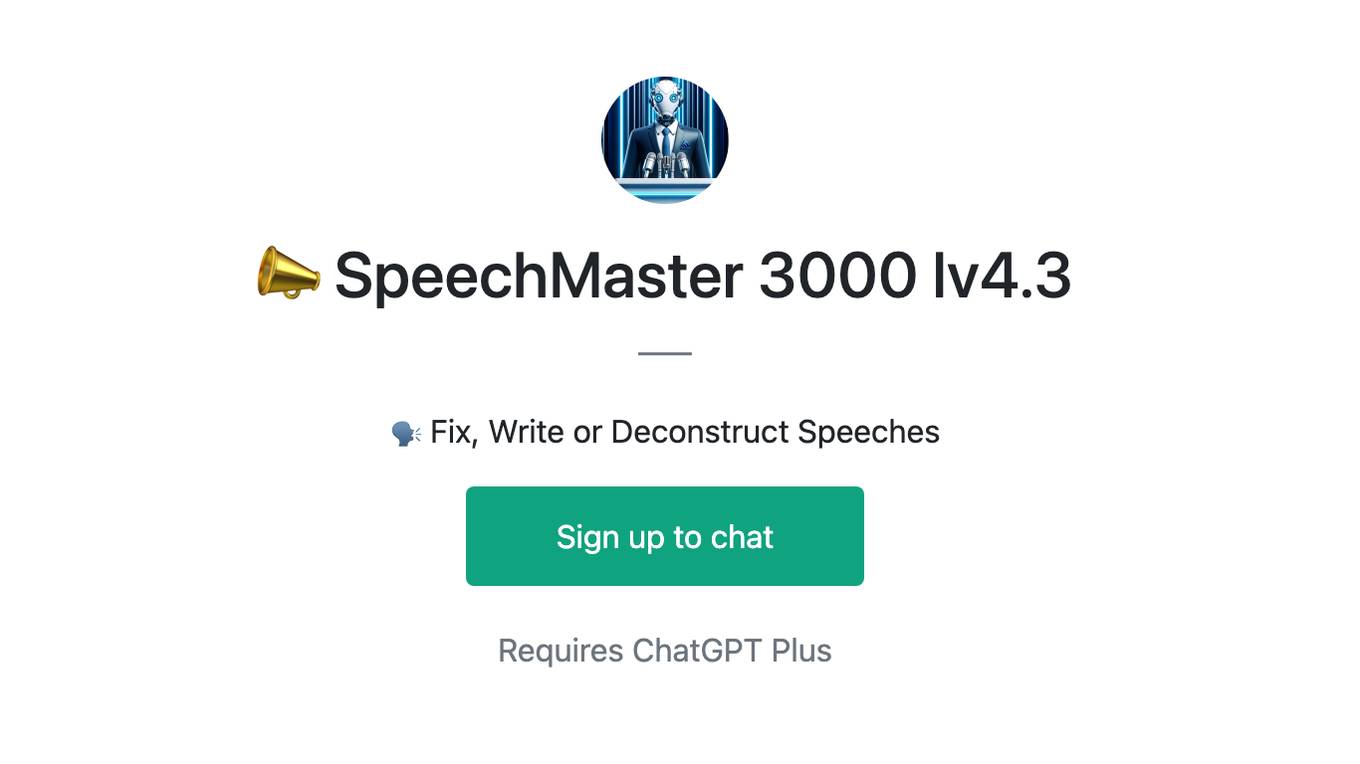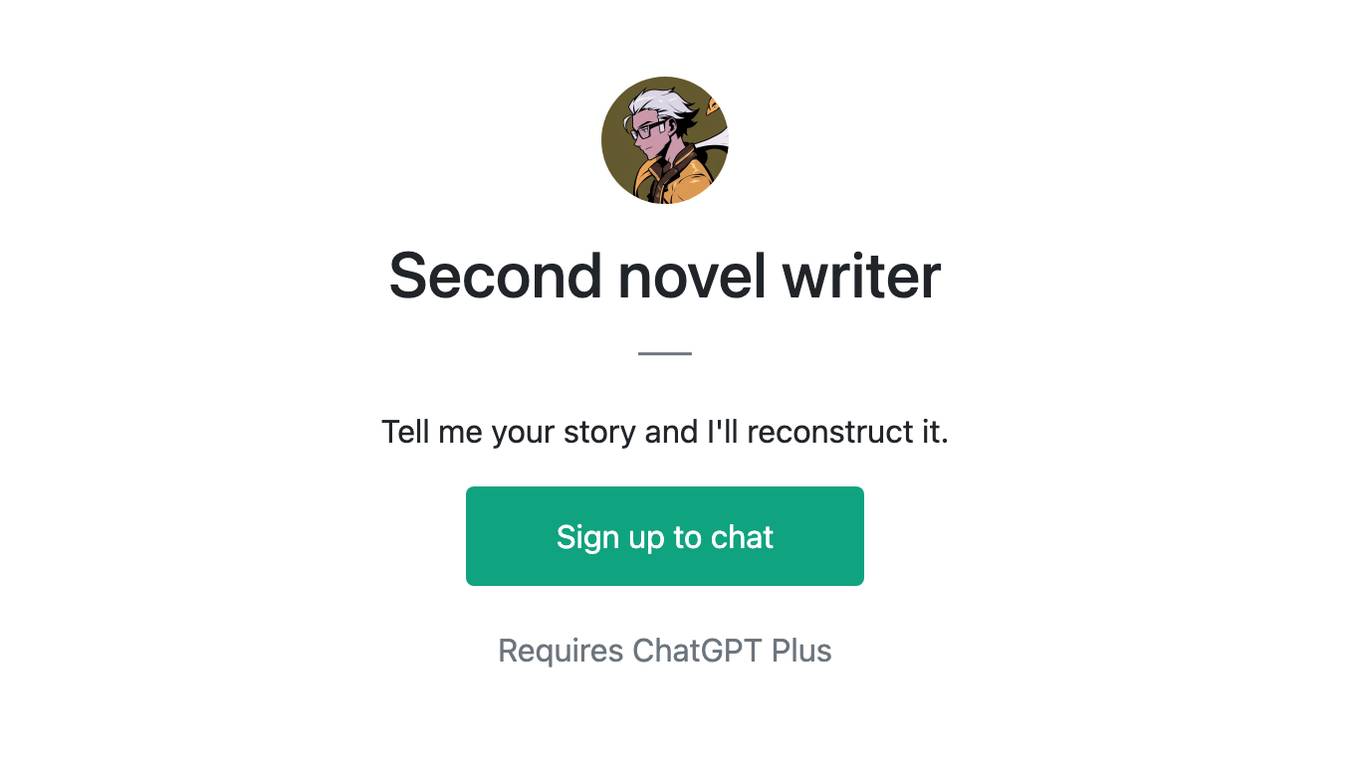Best AI tools for< Deconstruct A Speech >
4 - AI tool Sites
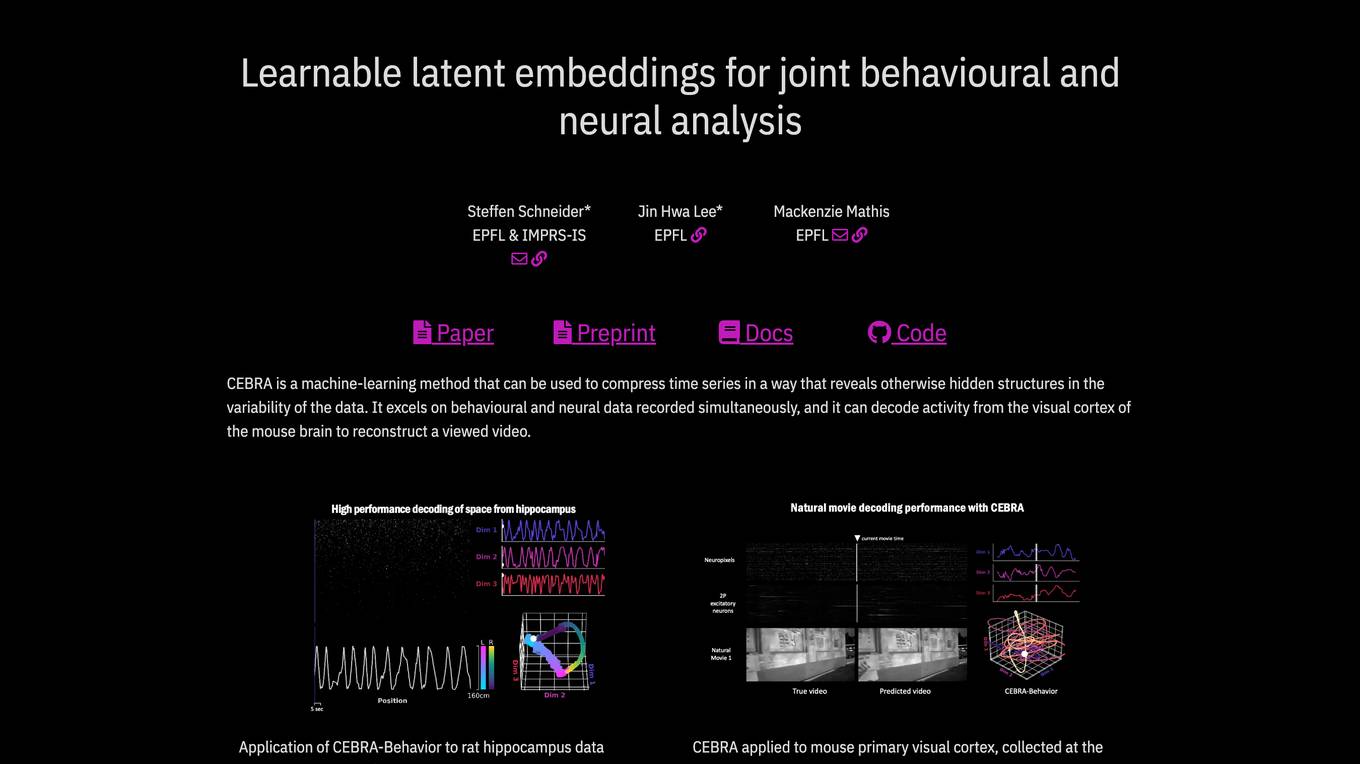
CEBRA
CEBRA is a self-supervised learning algorithm that provides interpretable embeddings of high-dimensional recordings using auxiliary variables. It excels in compressing time series data to reveal hidden structures, particularly in behavioral and neural data. The algorithm can decode activity from the visual cortex, reconstruct viewed videos, decode trajectories, and determine position during navigation. CEBRA is a valuable tool for joint behavioral and neural analysis, offering consistent and high-performance latent spaces for hypothesis testing and label-free usage across various datasets and species.
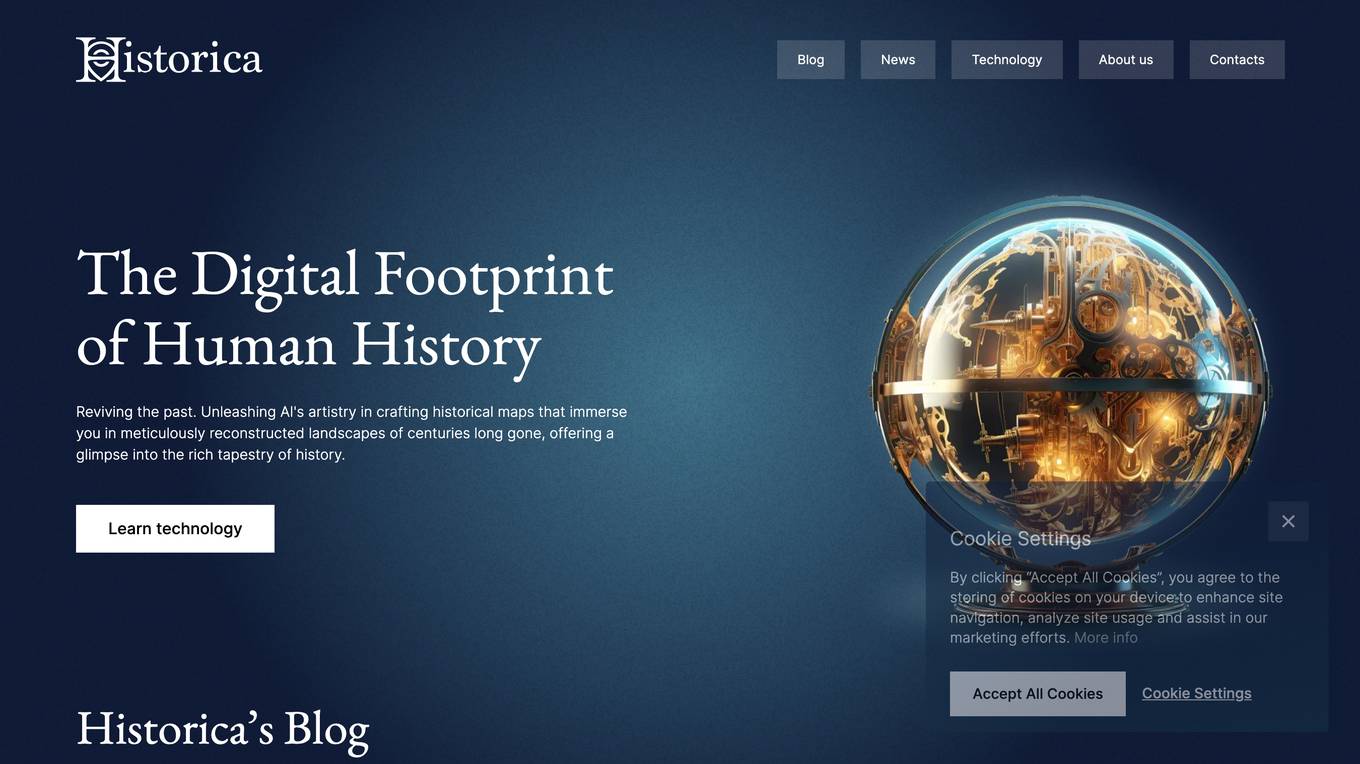
Historica
Historica is an AI-powered history map application that offers a unique experience of exploring civilization's timeline through meticulously reconstructed historical maps. By leveraging artificial intelligence, Historica immerses users in rich tapestries of history, unveiling hidden truths and reviving ancient civilizations. The application provides insights into historical events, artifacts, and cultural contexts, blending AI technology with human expertise to offer a comprehensive historical exploration platform.
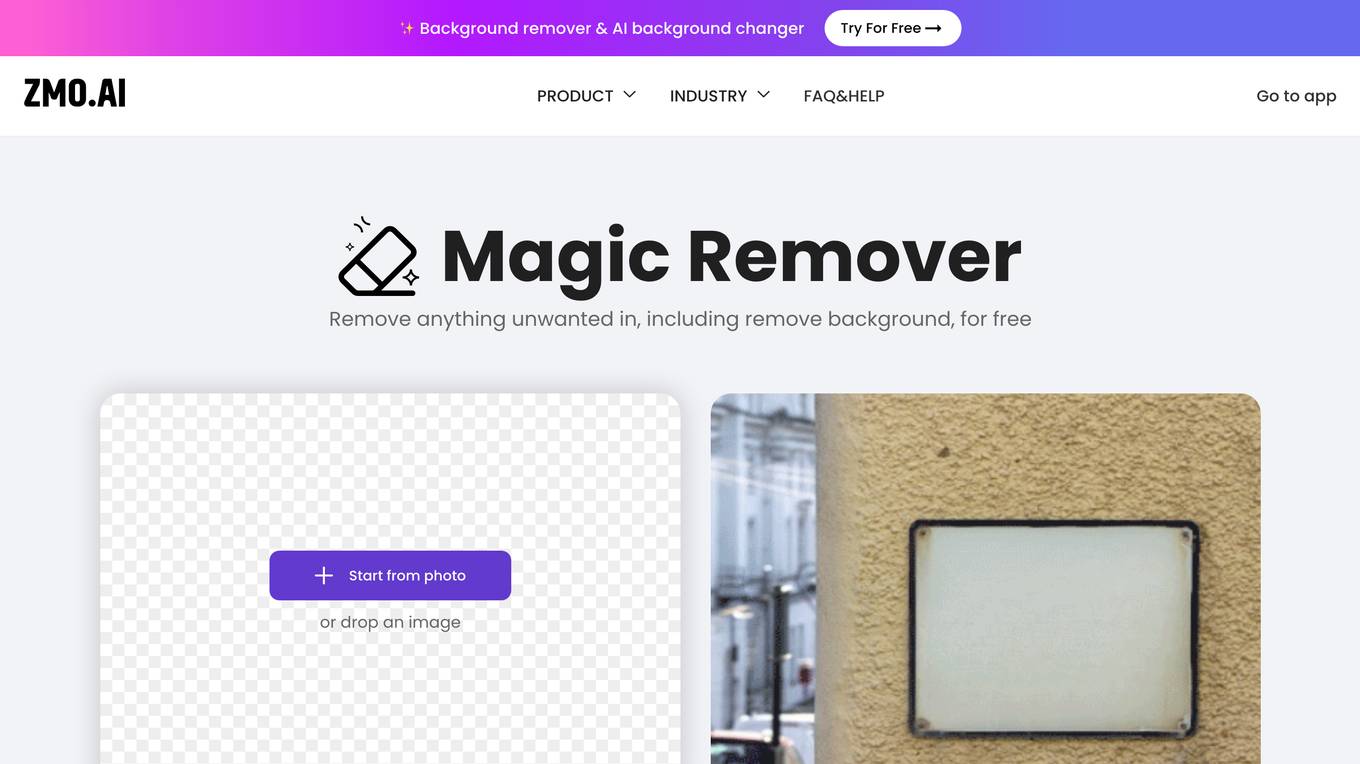
Remover.app
Remover.app is a free online tool that allows you to remove unwanted objects, people, or defects from your photos. It uses artificial intelligence to reconstruct the background behind the object, so you can achieve professional results in just a few clicks. Remover.app is easy to use, simply upload your photo and brush over the object you want to remove. The AI will do the rest! Remover.app is perfect for removing unwanted objects from product photos, real estate photos, and even family photos. It's also great for removing blemishes, wrinkles, and other imperfections from your photos.
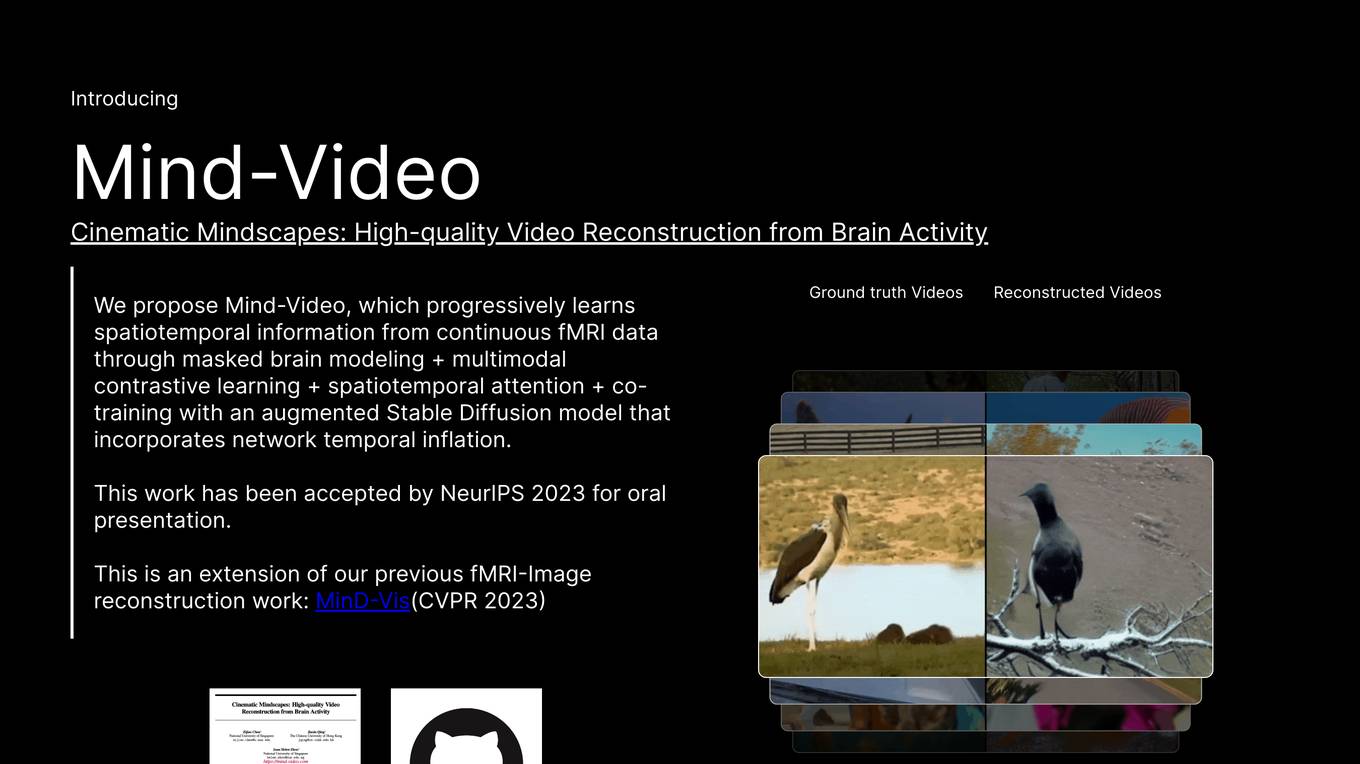
Mind-Video
Mind-Video is an AI tool that focuses on high-quality video reconstruction from brain activity data. It bridges the gap between image and video brain decoding by utilizing masked brain modeling, multimodal contrastive learning, spatiotemporal attention, and co-training with an augmented Stable Diffusion model. The tool aims to recover accurate semantic information from fMRI signals, enabling the generation of realistic videos based on brain activities.
0 - Open Source AI Tools
4 - OpenAI Gpts
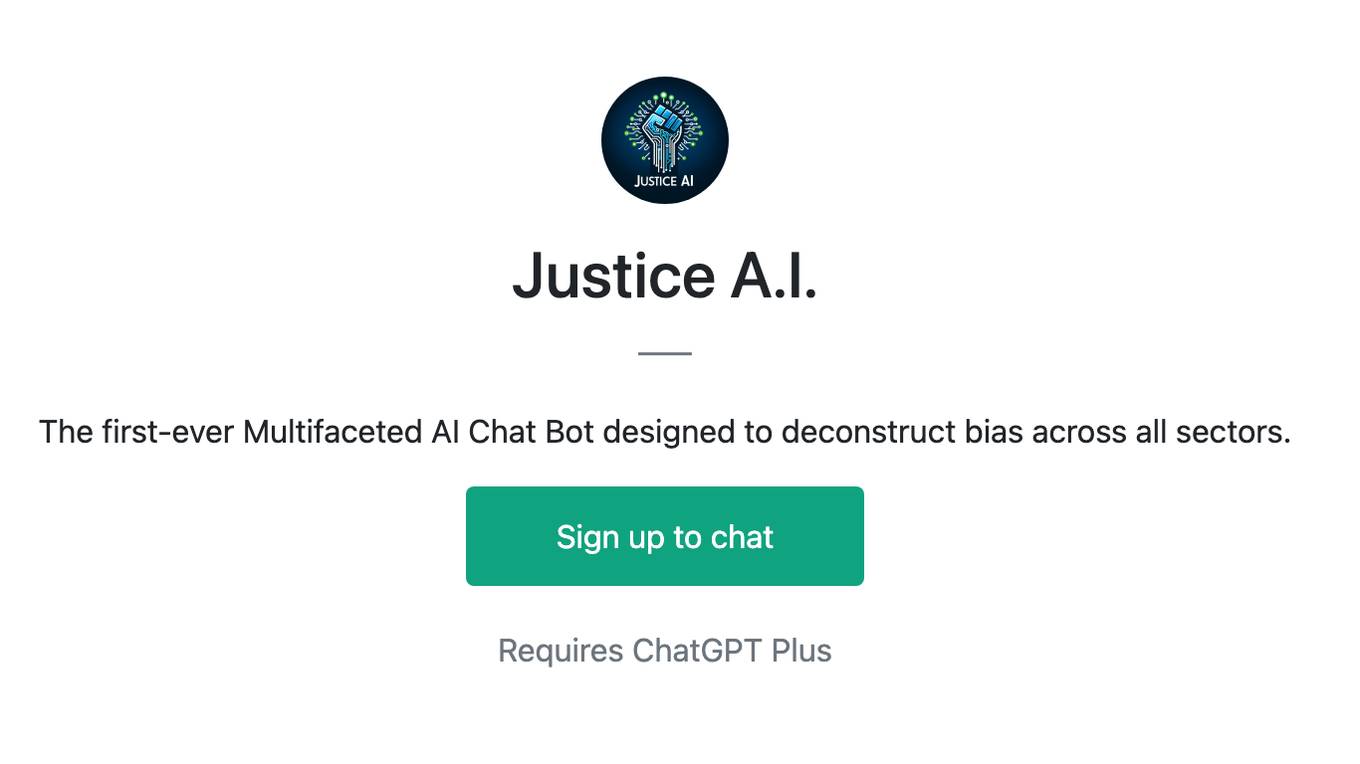
Justice A.I.
The first-ever Multifaceted AI Chat Bot designed to deconstruct bias across all sectors.
